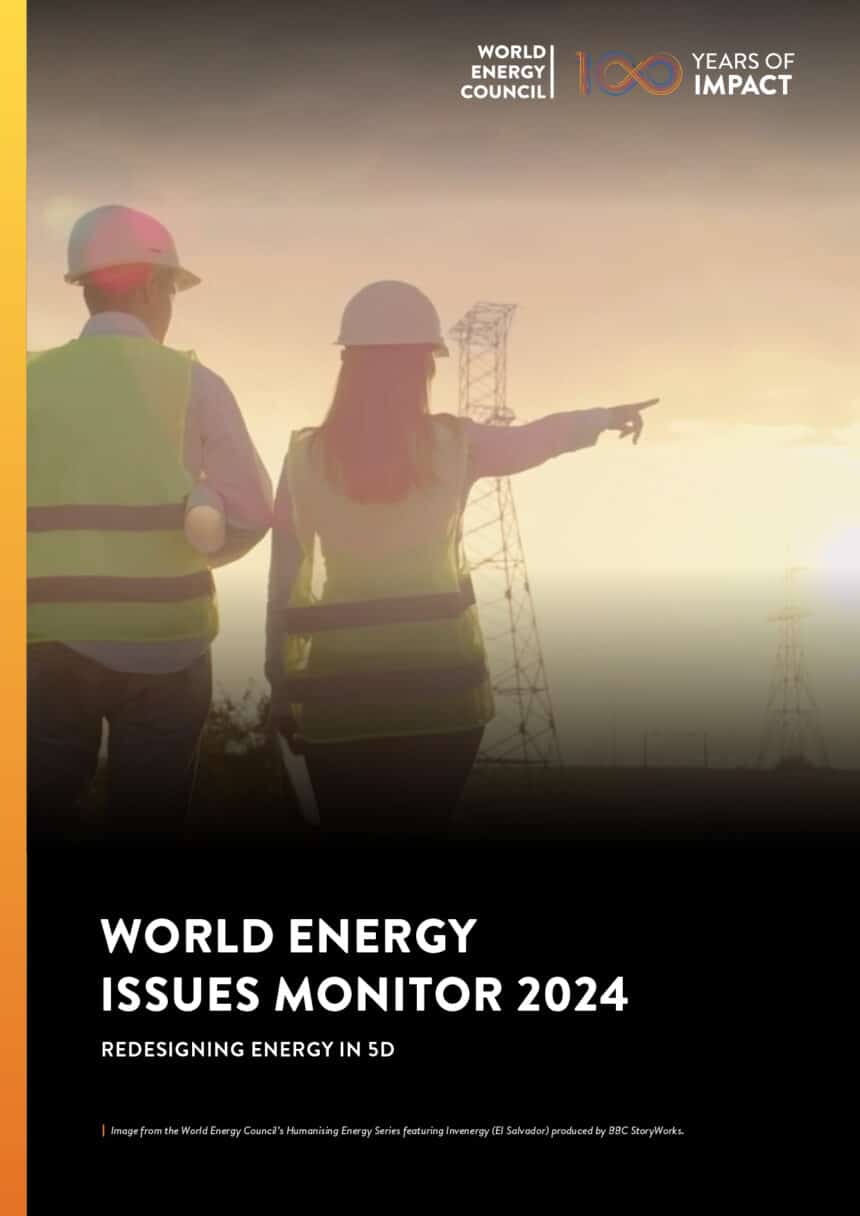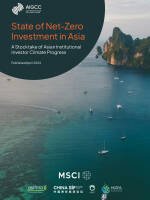- Version
- Download 15
- File Size 1.02 MB
- File Count 1
- Create Date 13/04/2024
- Last Updated 13/05/2024
World Energy Issues Monitor 2024
The 2024 World Energy Issues Monitor underlines the complex nature of energy transitions, emphasizing their multifaceted character where a one-size-fits-all strategy proves inadequate. Signals of deficiency, stress and strain are everywhere emphasising that redesigning energy for people in planet is imperative, making faster fairer and more far-reaching energy transitions happen is not easy.
For this edition of the World Energy Issues Monitor, the Council surveyed nearly 1,800 energy leaders and global experts drawn from its global network spanning over 100 countries. The survey was conducted in early 2024, following the conclusion of the 28th Conference of the Parties (COP28), which was held in Dubai in the United Arab Emirates in November 2023. The 2024 World Energy Issues Monitor should be considered within this context.
Key findings from this edition include:
1. Old and new geopolitical agendas are vying for pole position. Ongoing conflicts and instability in Ukraine and the Middle East, as well as the expansion of BRICS affect energy trade and security, with the geopolitics of energy extending to supply chains and data.
2. Energy security concerns have evolved beyond conventional supply side security to demand driven shocks and disruptions and the impacts of climate change. These include resilience, diversity of supplies, climate change, the energy-water-food nexus, shifts in supply chains and accessibility of critical minerals and metals.
3. Investor confidence in de-risking clean energy investment has grown significantly - except in Africa and Latin America and the Caribbean. There is an urgent need for increased investments in infrastructure and the scaling up of new technologies to facilitate energy transitions.
4. Transmission grid strengthening and expansion, as well as more flexible energy storage solutions, including demand management, are globally recognised areas of focus and action. Urgent action and investment are needed for resilient grids to meet rising energy demands and integrate renewables. There is no transition without transmission.
5. Social transformation gains momentum: demands for shared benefits, social inclusivity and justice increasingly influence energy strategies. Enhanced stakeholder coordination, bottom-up engagements and better-quality leadership dialogues are essential. While many locally appropriate novel approaches are emerging, the next challenge lies in scaling and connecting these initiatives.
(Source: World Energy Council)





